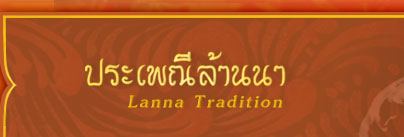Come all ye for the Mahachat preaching
To enhance thy hope and merit making
One who detached himself from all things,
His possessions, wife, daughters and sons.
The Sermon prescribed for one's zodiac and birth
Are great merit for supporting our religion.
The Pussadi episode will bring forth a pleasant apperance,
Be it body, complexion or eyes.
It will award to you a palace to reside in.
The Himaphan episode is good for one
Born in the year of the Bull
To be rich in jewels
And have a good spouse and family.
The Tanakan is for the year of the Tiger.
It will award you with lots of servants,
Whereas Wanaprawet is for the year of the Rabbit.
And Mahasikha makes you safe and sound.
Chuchok if for those born in the year of the big snake.
The Sermon brings great fortune and happiness
Just like Chuchok enjoyed Amittada.
Chunphon is for the year of the small snake.
This person will be delighted in a vast garden
As with a big house and all the facilities.
Mahaphon is for the year of the horse,
Enriched with fruitful produce.
Kumanban is for those born in the year of the goat
A high rank and honor is granted
All are sure to be with Ariyamettai.
Matsi is for the year of the monkey.
The merit will grant them longevity
A pleasant appearance and a life of splendor.
Sakkaban is for the year of the Cock
Giving in abundance
All that is lost shall be found.
Maharat goes with the year of the dog
Abounding in rank, praise and servants.
Chakasat matches with the year of the pig
Of good health, honor and safety be
While Nakhonkan of the Last episode
When Vessandon returns home
To assume his majestic throne
Being happy with wife and children all.
May all the faithful who attend
This grand sermon be, then,
Happy, healthy and wealthy
Till they receive all the merit recited thus far,
Obtain the glorious nirvana at the end,
And this poet come to cease his singing
As we depart for a while now. |
